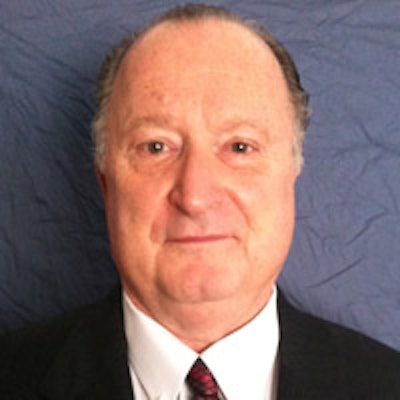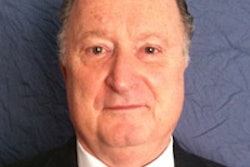
Early in my consulting experience with dentistry, a dentist/endodontist on the Eastern seaboard was driving me back to the airport for my return home. We had spent the last two days looking at his two offices, visiting several other offices he had an interest in acquiring, and, in general, speaking on the economics of retail dentistry.
 Thomas Climo, PhD, is a dental practice management consultant and a past professor of economics in England.
Thomas Climo, PhD, is a dental practice management consultant and a past professor of economics in England.He had not yet decided whether to retain me to help grow and assist in the profitability of his business. We arrived at departing flights. As I was getting out of the car to grab my luggage from the trunk, he took my arm, looked me dead straight in the eyes, and asked, "Can I trust you?"
I was reminded of this occurrence only last week when a general dentist in New Hampshire, who was retaining me to do a valuation of his practice, made this comment:
"You write very well and what you have to say is very important to dentists and the financial side of dentistry, especially as it relates to exit and retirement. However, you have never once addressed the issue of trust."
Why should a seller trust a buyer's agent, and why should a buyer trust a seller's broker? Until you answer this, the entire process of buying and selling dental practices will be founded on miscommunication and thinking the other guy is out to screw you.
I have never before been asked to comment on such a universal proposition having as much to do with human nature as with the economics of pricing a dental practice for sale. In what follows, I propose an answer that hopefully addresses both these issues.
First, as to human nature, and the skepticism for a seller of what a buyer or buyer's representative has to say, and the equal skepticism from a buyer as to what a seller or seller's representative has to say, I answer: "Let's take skepticism out of the scenario by agreeing to value the proposed dental practice in the same manner as all other dental practices."
Take seller or buyer bias out of the situation, and, instead, use a valuation formula that is agreeable and acceptable to both parties. In this manner, an economic boundary is set for the practice, and the price negotiation can then commence and turn on other matters having to do with clinic, staff, administration, and receivables. Economic valuation would be the bedrock for the negotiation of a price for sale.
Adoption of a universally working valuation formula is not in the interest of the transition or brokerage industry. While I have mostly concentrated my efforts regarding the transition industry to dentistry, it is interesting that the same dislike of a universal valuation formula applies elsewhere. Look at what a transition broker says about buying or selling an accounting firm, of all things.
It is a common misconception among certified public accountants that there is a set formula for valuing accounting or tax practices. The truth of the matter is that practices vary in a number of aspects, including size, makeup, age, location, etc. Trying to apply one value formula across the board really does not make sense. Accounting Practice Sales, the largest marketer of accounting firms in North America, understands the complexity of valuation and has devised a list of items that affect value in a report called Key Factors in Practice Value.
This is the same baloney that we hear from dental practice transition brokers. Somehow, only these brokers have the intimate knowledge and experience to express an opinion on the value of a business, whether that business is a dental practice or accounting firm. When Accounting Practice Sales tells us that applying a valuation formula across the board "really does not make sense," they forget to provide any analysis or even a simple reason why it doesn't make sense.
Having a uniform formula and, hence, valuation "number" for every dental practice or every accounting firm does make sense as it provides a reasonable piece of information that sets the economic boundary for the price negotiation to follow. The fact that the valuation formula is supported by five Nobel laureates, three pioneers in modern financial economics, and every major investment firm in the world, as well as a president of a major investment house well-known to the American public doesn't hurt the valuation formula argument.
I have yet to see an argument against a valuation formula other than the same old "size, makeup, age, and location" used by Accounting Practice Sales as its rationale for not using a uniform valuation formula. Accounting firms should know better, even if the poor owner-dentist is abused by such negligent thinking. Accounting firms account, and accounting for profitability is the No. 1 factor in determining the valuation of anything having to do with business. Size, makeup, age, and location are factors in revenue; earnings before interest, taxes, depreciation, and amortization (EBITDA); and net income.
From now on, let's take the spookiness out of valuation and return to the roots of modern economic analysis. See my "The 4 methods of valuing dental practices" from this past June.
In part 2, Dr. Climo will detail the foundation for further discussion and agreement on a sales price. He writes that trust is established by accepting the valuation formula as calculated by an acceptable valuation professional such as himself, and moving forward from there.
Thomas Climo, PhD, is a professor emeritus of accounting and finance at a major university in the U.K. He has published extensively about the importance of modern managerial and financial decision-making for dentistry. He is a consultant to corporate and solo practitioner dental practice management companies in the states of Arizona, California, Connecticut, Nevada, New Hampshire, New York, and Massachusetts. He can be reached by email at [email protected] or by telephone at 702-578-2757.
The comments and observations expressed herein do not necessarily reflect the opinions of DrBicuspid.com, nor should they be construed as an endorsement or admonishment of any particular idea, vendor, or organization.



















